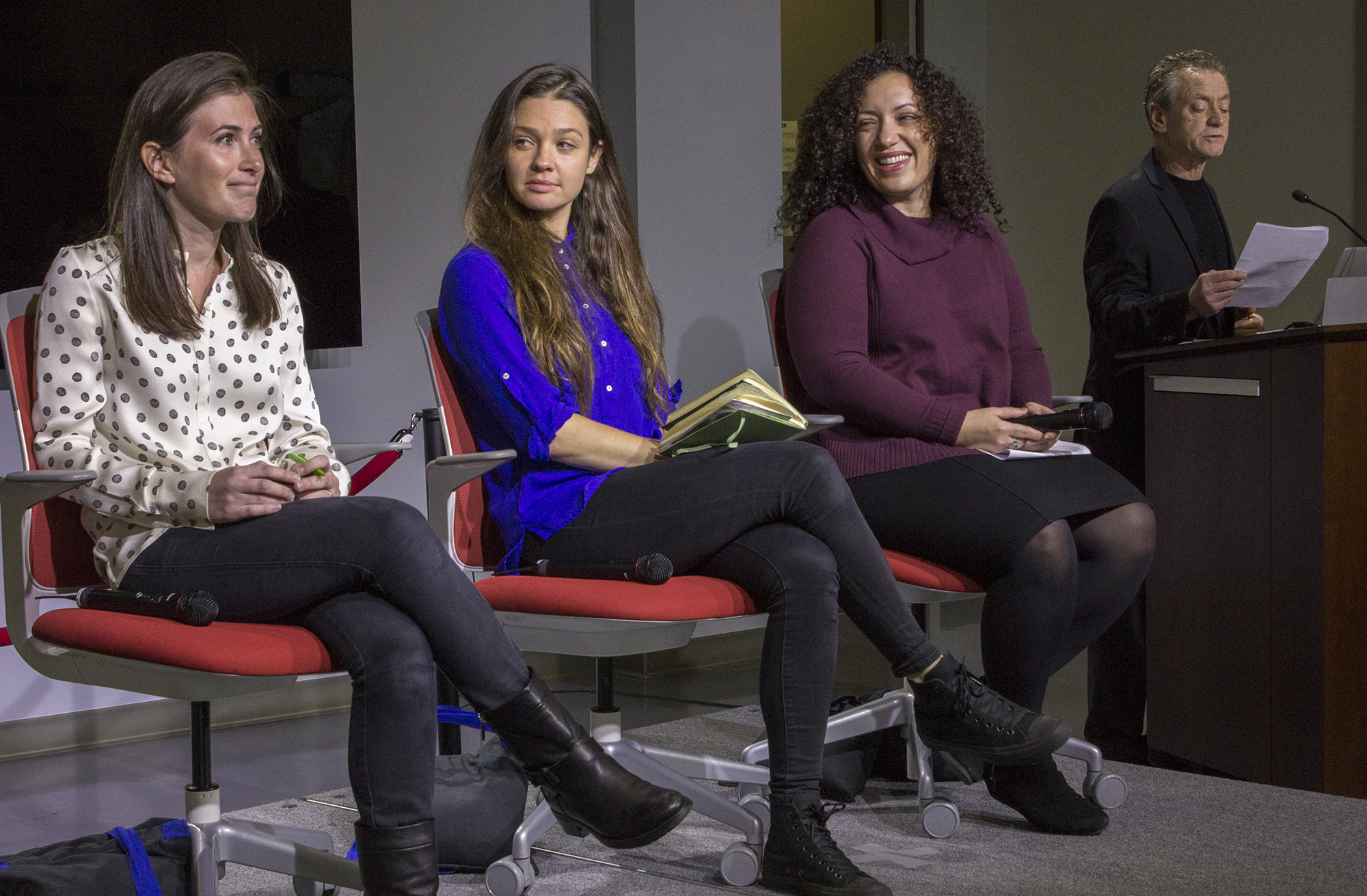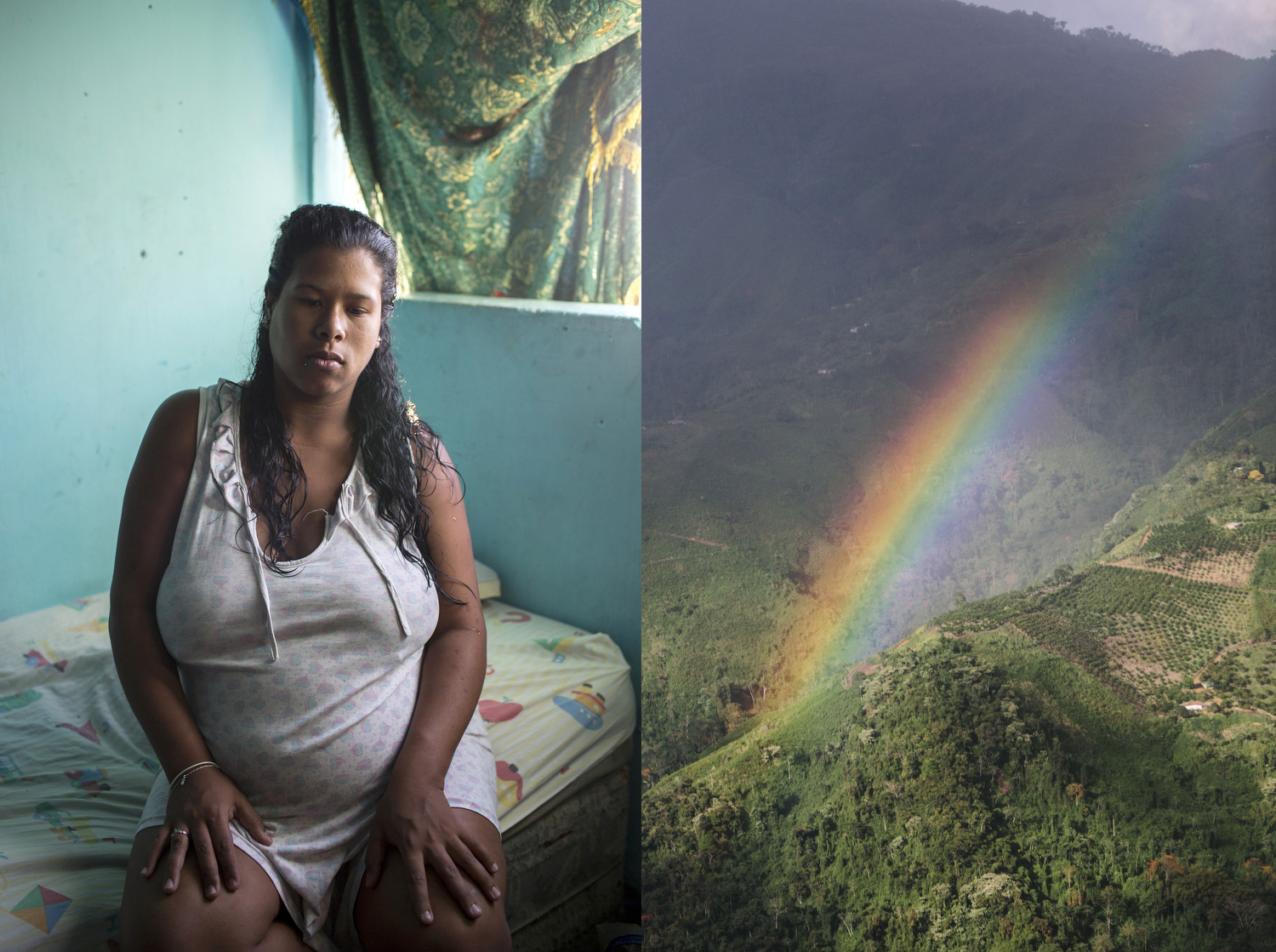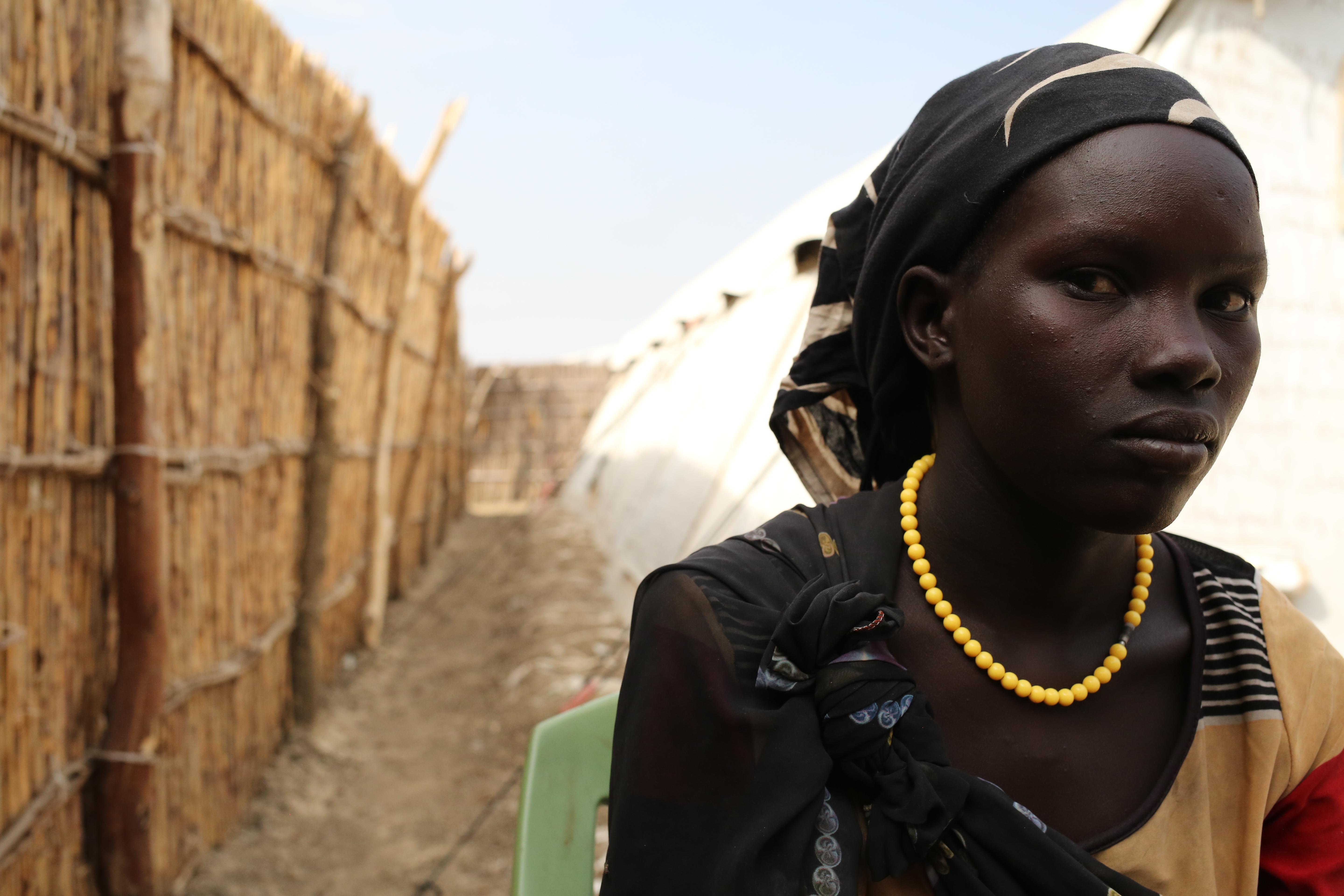
Journalists who have reported in conflict zones spoke to communications students and emerging journalists at the American University School of Communication on Sunday, March 26, 2017.
The "Women in Conflict" panel, which addressed the practical and ethical components of assessing risk, featured Pulitzer Center journalist grantees Natalie Keyssar and Cassandra Vinograd as well as Hannah Allam, who currently covers Muslin life in the U.S. at BuzzFeed and was formerly a national correspondent and bureau chief in Baghdad and Cairo for McClatchy Newspapers.
"My deepest concern in this endeavor is the safety of our students," said Bill Gentile, a journalism professor and primary link between the Pulitzer Center and Campus Consortium partner American University, before moderating the talk.
All three of the panelists noted the importance of giving voice to the experiences of the people who are survivors and victims of crises that have resulted from economic, political, and military conflict in the regions where they have reported.
Keyssar, a photojournalist who has recently documented the political and economic crises in a post-Chavez Venezuela, spoke about the risks of people besides the journalist herself.
"The first people you have to think of are the people you are placing at risk," she said, listing subjects of the story, fixers, and translators as other people who are at risk alongside the journalist.
Allam, who has covered foreign affairs and the State Department as a national correspondent for McClatchy, stressed that journalists should defer to local knowledge.
"Their word must be the final word," she said, adding it is the responsibility of freelancers to give credit to local journalists who contribute to the story.
The speakers also took the opportunity to address the role of female journalists in crisis reporting, advocating for an egalitarian approach to assigning stories, and not limiting opportunities for women to go into the field because of perceived higher risk.
Keyssar said, "I disagree with the idea that women are more at risk then men in journalism. It is important to assess those dangers, while not seeing the female risk as exceptional. Our risks are different; we can navigate risks unique to women or men."
The journalists offered tips they learned while reporting in dangerous situations. Vinograd, a freelance journalist and producer who has reported on the growing conflict in South Sudan, listed things to prepare before going into the field:
1. Leave contact information for your editors and policy numbers for your insurance with someone you trust.
2. Send a risk assessment to your editor.
3. Pack a medical kit and active boots.
4. Make sure your preparations are country specific.
5. Agree on how you and your fixer expect to react during a situation that becomes too dangerous.
Emerging journalists in the room learned tricks of the trade during the event, and more importantly, they were welcomed to contact the speakers with questions they had before embarking on their own journeys.
"There's a culture now of mentorship," Vinograd said, encouraging students to reach out to freelance journalists.
The panel discussion was streamed live via Facebook, and the video is available via the embedded link above. Watch the video for stories about how these journalists learned different ways of assessing risk, how to prepare before your reporting trips and more.
To learn more about freelance journalist safety, watch "Facing Risk," a short film by Pulitzer Center Associate Producer Evey Wilson.

Project
The Office of Hope
In post-Chavez Venezuela, as an economic and political crisis threatens to plunge the country even...








